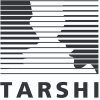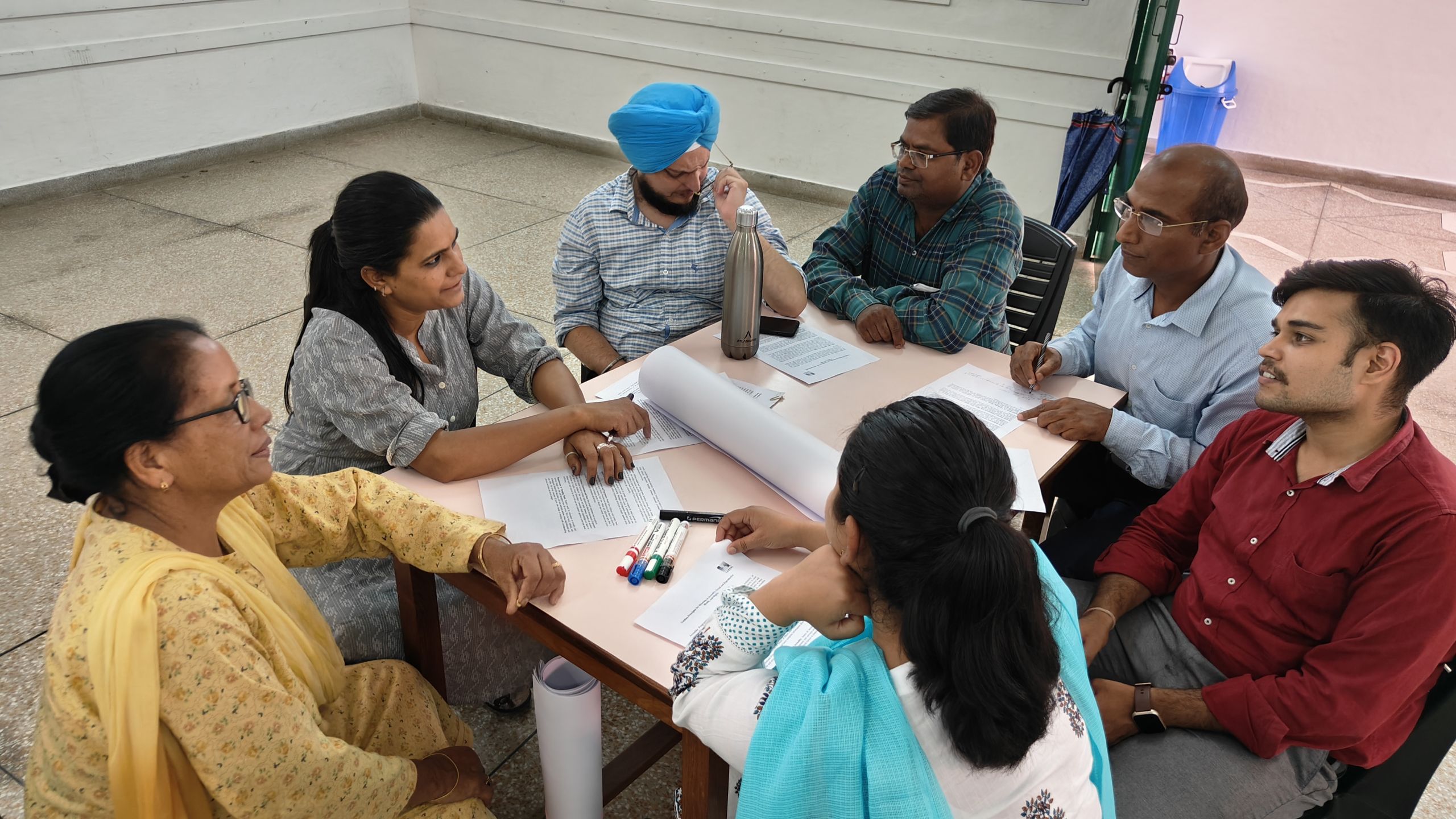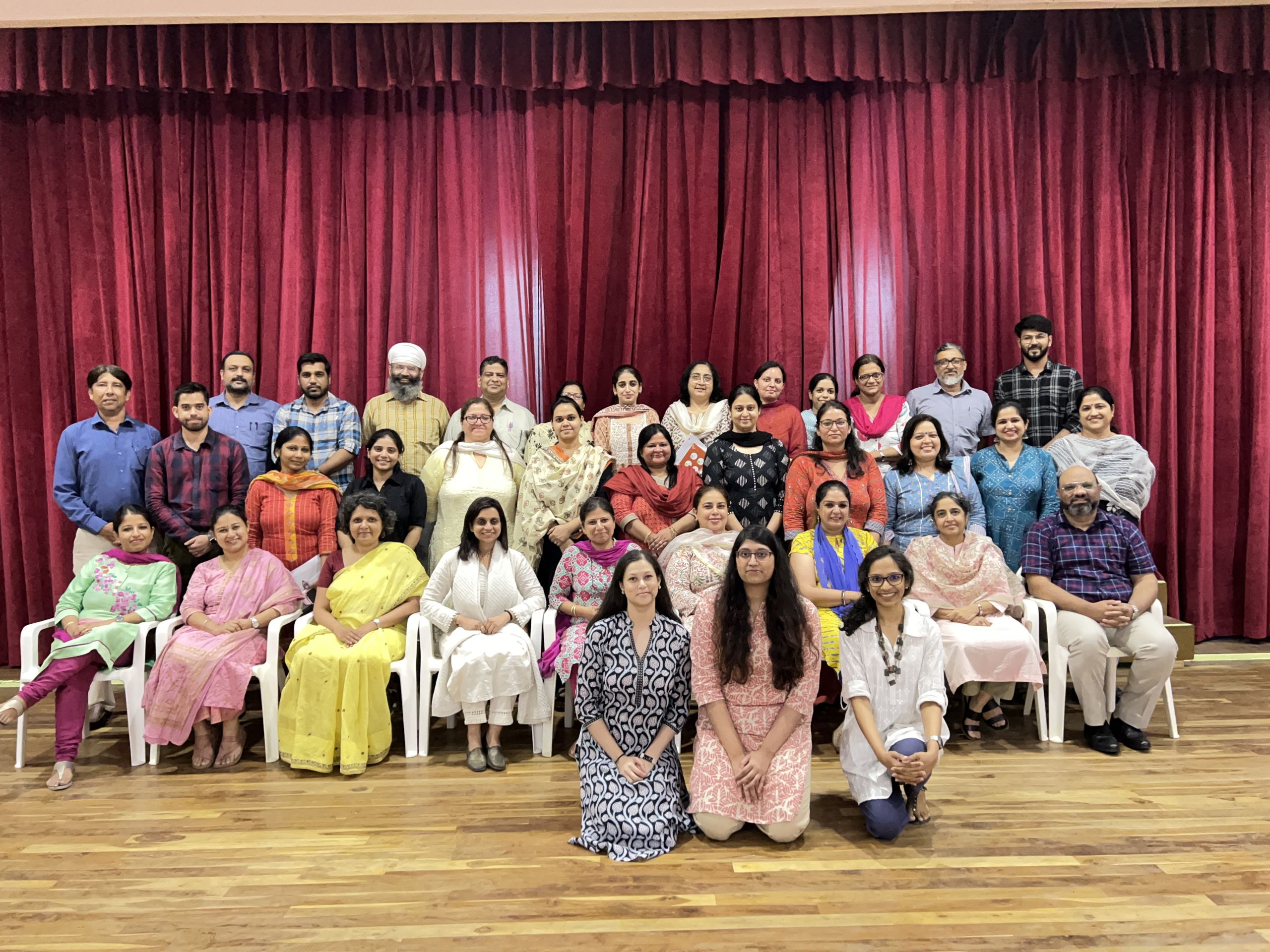“Should there be separate sessions for boys and girls on menstruation?”
“When should we talk about attraction and relationships to our students?”
“Students these days know more than us about sexuality, they don’t need us to explain anything…”
“Some student asked me for my pronouns today. What do they mean?!”
“I’m worried about all the information students get from social media… how do I discuss this in class?”
Are you a teacher or educator who has had similar questions? Do you find it difficult or feel unprepared to address students’ doubts about gender, sex and sexuality?
Do you wish to learn how to talk about sexuality and gender with your students? Are you looking for someone to help you build a safe and inclusive sexuality education workshop in your school, institution or organisation?
TARSHI has over 20 years of experience conducting training on Comprehensive Sexuality Education for schools and educators and has published credible resources and eLearning courses to help teachers and educators understand what CSE is and equip them with skills to engage comfortably on sexuality-related issues.
Studies such as UNESCO’s International Technical Guidance on Sexuality Education (2018) show how Comprehensive Sexuality Education (CSE) enables children and adolescents to acquire accurate, age-appropriate knowledge and empowers them to make responsible decisions. Yet, CSE attracts much discussion for and against it! (Please click here to read some frequently asked questions related to CSE). The focus of TARSHI’s training for educators is to help educators assimilate accurate knowledge on sexuality and gender at a personal level and also develop the skills to talk about the same with children/young people and parents they interact with. The training also helps educators understand the importance of CSE and explore and address their doubts or discomfort around the issue.
WHAT DOES THE TRAINING OFFER?
WHO IS THIS TRAINING FOR?
- Teaching and Non-Teaching Staff of schools, including schools that have students with disabilities
- Sexuality Educators
- Parents
- Staff of any organisations (medical/ non-governmental/ corporate or more) working with young people
DURATION
Typically two days long for a comprehensive introduction to the topic and for participants to explore tips and tools to talk about CSE with young people.
Language
English or Hindi
LOCATION
Delhi/NCR and other parts of India and South Asia
PREVIOUS TRAININGS CONDUCTED WITH:
Some of the schools and organisations for which we have conducted CSE trainings include Ahvaan Trust, Bharat National Public School, Hopetown Girls’ School, Pardada Pardadi Educational Society, Presidium, Step by Step, The Srijan School, Udaya School, Welham Girl’s School and more.

“It {the training} was good. We learned a lot of things from this training. We gained the confidence to talk to children about this when they need it. We can teach them about safe and unsafe touch. Instead of explaining only the negative side of something, we learned that we should always talk about its positive side first.”



